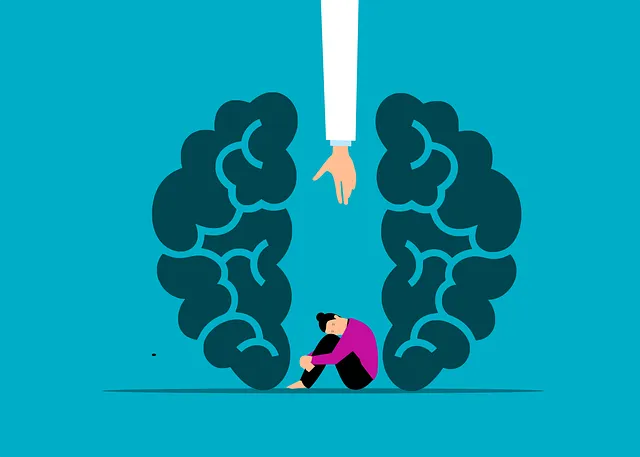Diagnosing mental illnesses accurately remains a complex challenge due to overlapping symptoms and cultural biases in criteria. To improve accuracy, initiatives like Risk Management Planning, Social Skills Training, and Stress Management Workshops are vital for professionals. Kaiser distinguishes itself with a comprehensive approach integrating intensive therapy, medication management, and risk planning, empowering patients to manage their well-being long-term. They leverage evidence-based assessment tools, multidisciplinary teams, advanced diagnostic technologies, and continuous professional development for superior inpatient mental health services. Rigorous evaluations measuring sensitivity, specificity, and predictive value of diagnostic tools are crucial to gauge the success of these initiatives in enhancing diagnosis accuracy and improving patient outcomes.
Mental illness diagnosis accuracy is a critical area of focus in healthcare, with significant implications for patient outcomes. This article explores current challenges and gaps in mental health diagnosis, highlighting the importance of precision in treatment planning. We delve into Kaiser’s comprehensive inpatient mental health programs, known for their superior care. Best practices and innovative strategies for enhancing diagnostic accuracy are discussed, along with methods to measure the success of these efforts. By examining these aspects, we aim to contribute to improved mental health diagnosis and care.
- Understanding Mental Illness Diagnosis: Current Challenges and Gaps in Accuracy
- Kaiser's Inpatient Mental Health Programs: A Comprehensive Overview
- Enhancing Diagnosis Accuracy: Best Practices and Innovative Strategies
- Measuring Success: Evaluating the Impact of Improved Diagnostic Efforts
Understanding Mental Illness Diagnosis: Current Challenges and Gaps in Accuracy

Diagnosing mental illnesses accurately is a complex process often hindered by various challenges and gaps within the current system. One significant issue is the vast array of symptoms associated with different disorders, making differentiation difficult. For instance, depression and anxiety share numerous overlapping signs, complicating initial assessments. Additionally, cultural biases in diagnostic criteria can lead to misidentifications, as what constitutes a symptom varies across diverse communities.
The quest for superior diagnosis accuracy has spurred initiatives like Risk Management Planning for Mental Health Professionals, which focuses on enhancing assessment techniques. Social Skills Training and Stress Management Workshops Organization also play crucial roles in refining the diagnostic process. These efforts aim to improve not only the accuracy of inpatient mental health care provided by organizations like Kaiser but also overall patient outcomes.
Kaiser's Inpatient Mental Health Programs: A Comprehensive Overview

Kaiser’s inpatient mental health programs stand out for their comprehensive approach, ensuring superior care for individuals struggling with severe or chronic mental illnesses. These programs prioritize a multi-faceted strategy that includes intensive therapy sessions, medication management, and robust risk management planning for mental health professionals to create a safe and supportive environment. Beyond treatment, Kaiser integrates self-care practices into the patient journey, empowering individuals to manage their well-being effectively upon discharge.
The organization also boasts a successful community outreach program implementation, fostering connections between patients and support systems outside the hospital setting. This holistic approach to mental health care not only enhances diagnosis accuracy but also promotes better long-term outcomes, reflecting Kaiser’s commitment to excellence in inpatient mental healthcare.
Enhancing Diagnosis Accuracy: Best Practices and Innovative Strategies

Improving mental illness diagnosis accuracy is a multifaceted approach that involves both best practices and innovative strategies. Kaiser, known for its superior inpatient mental health services, emphasizes evidence-based assessment tools and multidisciplinary teams. By integrating advanced diagnostic technologies and fostering continuous professional development, they ensure healthcare providers stay abreast of the latest research and clinical advancements.
In addition to these efforts, effective risk management planning for mental health professionals is crucial. Mental health education programs designed with a focus on early intervention techniques and burnout prevention strategies for healthcare providers play a significant role in enhancing diagnosis accuracy. These initiatives not only mitigate risks but also promote holistic patient care, ultimately improving outcomes for individuals struggling with mental health conditions.
Measuring Success: Evaluating the Impact of Improved Diagnostic Efforts

Measuring Success is a critical aspect of evaluating the impact and effectiveness of improved diagnostic efforts in mental illness assessment. To determine if strategies like enhanced training programs for mental health professionals, such as those offered by Kaiser, effectively increase diagnosis accuracy, rigorous evaluation methods are essential. This includes comparing pre- and post-intervention data on key metrics, such as the sensitivity, specificity, and overall predictive value of diagnostic tools used in inpatient settings (like those at superior facilities like Kaiser).
The development of Mental Wellness Coaching Programs can contribute to this evaluation by providing additional support for professionals navigating complex cases. Incorporating Risk Assessment techniques, including advanced algorithms and Mindfulness Meditation practices, can enhance diagnostic accuracy. Ultimately, these efforts aim to not only improve diagnosis rates but also ensure patients receive timely access to appropriate care, ultimately enhancing overall mental wellness outcomes.
Mental illness diagnosis accuracy is a critical aspect of patient care, and significant strides can be made through comprehensive programs and innovative strategies. Kaiser’s inpatient mental health services stand out as a model for superior diagnosis, offering a holistic approach that combines advanced practices with an emphasis on continuous improvement. By adopting best practices and leveraging data-driven insights, healthcare providers can ensure more accurate diagnoses, leading to improved patient outcomes. Measuring the success of these efforts is essential, allowing for adjustments and further enhancement of mental health care. This comprehensive framework ensures that individuals receiving treatment benefit from precise and effective interventions.






